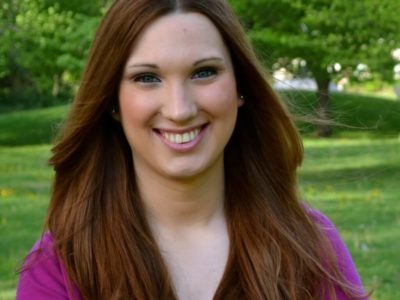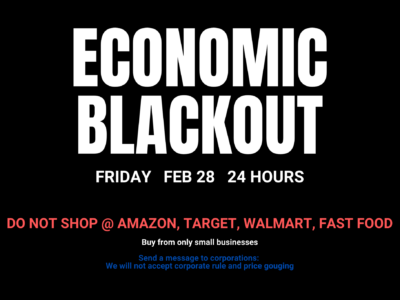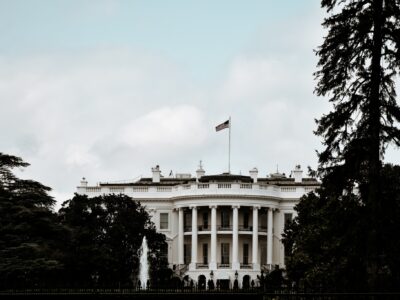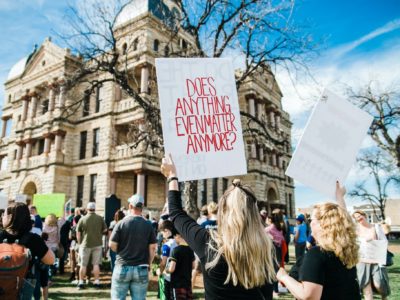In 2016 Sarah McBride became the first transgender person to speak at a major party political convention. However, her time on stage at the DNC was not her first time in the public eye. McBride learned the ins and outs of local campaigns as a teenager in Delaware, and was inspired to run for student body president at American University.
After coming out as transgender at the end of her term she became more involved in advocacy and activism for transgender and LGBT rights. Today she is the National Press Secretary for the Human Rights Campaign. As an activist who lead her campus government, she understands the power that college students have when it comes to igniting change in our society.
Sarah McBride Career Timeline
2008 – Worked on Delaware Governor Jack Markell’s campaign
2010 – Campaigned for Delaware Attorney General Beau Biden
2011 – Elected Student Body President at American University
2013 – Graduated from American University with a B.A. in political science
2013 – Joined the board of Equality Delaware
2016 – Spoke at the Democratic National Convention
Q&A with Inspirational Women Leader Sarah McBride
Q: How and when did you decide you wanted to pursue a career in activism?
A: I’ve always been interested and involved in politics and policy, even as a young person in my home state of Delaware. I volunteered, and ended up working on several campaigns, including for our most recent former-governor Jack Markell and the late, former attorney general Beau Biden who I worked for on staff in 2010. In my sophomore year at American University I was elected student body president at American and at the same time I was really struggling with my identity and whether or not to come out as transgender. And it had been something I struggled with my entire life, I told myself that if I could make my family proud, if I could improve my community a little bit, be successful, that those things would somehow fill the void in my life.
Serving as student body president and getting a taste of what it’s like to make change in one’s own community, I came to the realization that the things I’d told myself would make me feel complete, wouldn’t actually. Over the course of my term I came out to friends and family and then on the last day of my term as student body president I came out to the entire campus in an op-ed in the student newspaper.
I had an incredibly positive experience and the reaction from the campus community was incredibly, incredibly supportive. But I looked around campus and I saw that the experience and the response that I had due to, in large part, my own privilege as student body president and as someone who had built a network of support at the university, wasn’t necessarily shared by other students on the campus, particularly other transgender students on the campus. And it was clear that wasn’t just the reality on AU’s campus, it was a reality everywhere, and so I sort of resolved to help change that, to make sure that the privileges that I had in coming out weren’t actually privileges anymore but rights given for every single person.
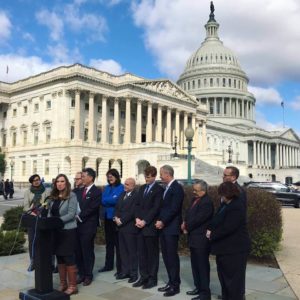
I utilized that experience as a sort of catalyst for getting involved specifically in LGBT activism. I joined the Board of Equality-Delaware and helped lead our effort in Delaware to pass the Gender Identity Non-Discrimination Bill in 2013 as I was preparing to graduate from college. And then came back down to D.C. to make the change that I’d helped implement on AU’s campus and in Delaware—help make that change nationwide. That’s what eventually led me to the Human Rights Campaign where I serve as our National Press Secretary, a sort of national spokesperson for the organization which is the largest LGBT rights organization in the country. That’s what continues to drive me in my advocacy and my activism.
I’m a firm believer that our colleges should represent what we want our country to look like in 10 or 15 years. We usually call our cities and states “laboratories of democracy,” the places where we try to experiment with different kinds of policies and practices and we try to build the world we want to see moving forward, which eventually we try to implement nationally, and I think college is the same way.
Colleges are “laboratories of democracy” where we can build a model for the kind of society and community and country we want to build. And that is something I believed and tried to instill in my peers when I was student body president. It’s something I continue to believe now, and it’s the experiences and the skills that I gained at American, and that I had at American, that I carry with me.
Q: What inspired you to become a campaign staffer in Delaware? Can you describe what that experience was like and why it is important for college students who are interested in politics and activism?
A: I got involved in Delaware and the first campaign I volunteered on, I was very young—I was nine years old—and it was just a family friend who was running for mayor of our city, allowing me to tag along. But then I started really volunteering more significantly when I was 13 and 14 during the 2004 campaign for an individual who ran for insurance commissioner and then again, I interned on the 2006 Beau Biden campaign, served as a staff member for the 2008 governor campaign and staff for 2010 for Beau again.
I got involved because I think politics is where all aspects of society converge and there is no more effective way of improving the lives of your family and friends than through political activism. And I think really, in a state like Delaware, which is a smaller state, one person can have a really outsized difference, really get to know their elected officials, develop a relationship with their elected officials, speak to their elected officials about the issues that they care about in a personal and intimate political setting.
It was an infectious environment. It was an environment that really demonstrated for me the power that one voice can have in changing the community. And again, I think it’s the same way on college campuses. Even the largest college campus isn’t so big that one voice can’t make an incredibly large difference. I got involved because I wanted to help my community, I wanted to help my neighbors, and I realized that politics was the most effective way of doing that.
And I also think for someone who was struggling with who they are, their place in the world, for the longest time I wanted to go into politics and advocacy and activism to try to make the world a little bit fairer for other people like me, who worried about their dreams and their identities being mutually exclusive, who grow up with big dreams, and at a certain point, look around and wonder, are my dreams possible? Why aren’t there other people like me, or that look like me in those roles? For me part of it was trying to, even before coming out, trying to make whatever struggle I had, which again was privileged compared to the struggle and the experiences of a lot of marginalized folks, and a lot of trans people in particular, it was still the hardest thing I had to deal with up until that point, make it a little easier for other people.
Q: You’ve mentioned that you feel your privilege informs your your experience, so how would you say that fits into your journey and your narrative?
A: In coming out as transgender and just being myself, those things were, coming to terms with who I am, up until doing so was the hardest thing I had ever done in my life. In coming out, it felt like I was giving up everything that I had hoped for and dreamed of and everything that I had worked for and everything I had developed—relationships, experiences, and again, hopes and dreams. Despite that fact, my coming out, my experience was relatively easy compared to other people. I had a support network—my family and friends—who supported me every step of the way.
I never worried my parents would kick me out of my house. I never worried that my parents would cut me off from their financial support, completely removing my ability to go to college. I never worried about my campus throwing me out, kicking me out of school because of who I am or denying me the same opportunities my peers had. As student body president I developed relationships with administrators and faculty and my peers that I think provided me with layers that other people didn’t have, but it was still very difficult. And it shouldn’t—it doesn’t have to be that way.
So looking around, seeing that those things were constants in my life but not really constants in other people’s lives, I was really moved to make a difference—to change that. There were other things, my family’s economic background, my race as a white person, these are factors that impacted my safety and security as a transgender person. And those are all things that underscore the fact that the fight for LGBT equality is inextricably linked with the fight for gender equity and inextricably linked with the fight for racial justice, disability rights, or in combatting Islamophobia or xenophobia. That’s a lesson that I learned very clearly, a lesson in intersectionality, the mutuality of our humanity, that I try to remember.
Q: How can students get involved in causes like LGBTQ rights and head down the pathway towards public service and start actually making a difference while they’re still in college?
A: There are a whole host of opportunities that college students have in making a difference. Obviously outside of campus there are internships in their local communities and outside of their local communities. There are internships in state legislature, there are internships in city hall, there are internships in LGBT advocacy organizations. Here in D.C. there are of course internships at organizations like the Human Rights Campaign. These are really important and substantive ways that young people, and particularly college students, can play a role and have a seat at the table in state legislature, city halls, and advocacy organizations.
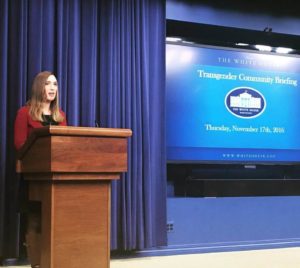
One of the things that I always encourage students at American to remember is that there is change right in from of them. There are peers and classmates who need their campus to become more inclusive, to become more welcoming, to become more accessible and that change needs to happen. If we aren’t the ones making that change then no one will be.
Being involved in the school’s LGBTQ group, even as a member of the community or as an ally who supports efforts around advocacy, those are incredibly important things. As an alumnus of student government, I would say one of the most effective ways is for students to run for office. Student government is one of the most effective ways for students to make change on their college campuses. We also know that young people who run for student government, particularly young women that run for student government, are more likely to consider going into public service later on in their life, to run for office later on in their life, outside of the college community.
Q: Lately we’ve been seeing a lot more women and a lot more diverse voices starting to run for office. How do you think that will end up shaping our political sphere?
A: When diverse voices are heard, including when young voices are heard, change is possible. Young people have a unique perspective in these conversations because young people can speak from a place of history. Elected officials know that we, as young people, are the ones who will be writing the history books. We’ll be the ones looking back on the actions of today and deciding who was right and who was wrong. Who was on the side of justice and who was on the side of marginalization and injustice.
We also know that if you’re not at the table then you’re on the menu. So for women to be involved in politics, for people of color, for LGBTQ people, we know that when diverse voices sit around the table that table is more likely to address the needs of every person, of every community, particularly those who have so often been left behind. And that makes a tangible difference in the kinds of policies we adopt.
It makes a difference in whether or not we fund Planned Parenthood. It makes a difference whether people can access reproductive healthcare that they need. It makes a difference to whether LGBTQ people have protection against discrimination—whether people of color are protected from violence at the hands of anyone including a police officer. It means that immigrants have a place in this country and don’t have to face deportation. When these voices are heard, it means that we are truly addressing the needs of every person in this country.
Q: Can you speak a bit about how you helped to pass legislation in Delaware to ban discrimination on the basis of gender identity?
A: During my second semester of senior year at American University, I was preparing to graduate from college, I was trying to decide whether I was going to move back to my home state of Delaware. It was clear to me that I had to make a decision between going back to the state I loved and being safe and secure. Delaware law, which lacked transgender protection at that time, wouldn’t allow me to have both.
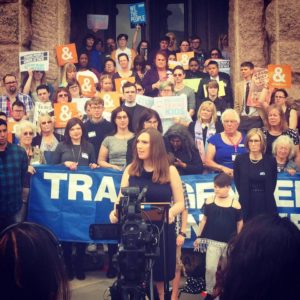
I arranged my schedule in a way that I could go back to Delaware during the weekdays as much as possible, and then after I graduated every day, to meet with the legislators one on one, to go office by office by office, talking to them about my experience and the experiences of other transgender people—making sure that they could put behind this issue a real person.
That bill didn’t pass because of money, it didn’t pass because of politics. It passed because over time these legislators met us, they met our families, and they saw that we were worthy, that we deserve to be seen, and that all we were asking was to be treated with the dignity and fairness that each person deserves. For me it really cemented that empathy is the most powerful human emotion.
Q: Can you speak about your experience speaking at the DNC?
A: It was an incredible opportunity. It really symbolized how far we’ve come, but how much work remains, particularly after the results of the election. It was a reflection of the increased acknowledgement that diverse voices deserve to be heard. Standing on that stage, I could see my parents who were standing with the Delaware delegation the whole time, and I could see them crying and watching and I couldn’t help but think about how scared they were when I came out—how fearful of rejection, in every sense of the word, they were for me and our family. And here they were, only about four years later, standing in the middle of an arena watching thousands of people affirm their child’s dignity and identity.
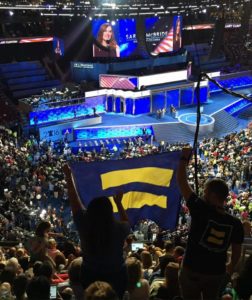
There were transgender people in the crowd and this was the first time they saw a mainstream political organization so clearly and affirmatively embrace their cause. It was a really incredible thing to be a part of, particularly for a community that for so long was invisible that then went to being visible but feeling like a liability—where we now look around and see our allies standing up, we see the passion in their voices, we see the commitment in their hearts to build a world where transgender people are welcomed and affirmed and embraced, and where our understanding of “We the People” finally includes us.
Q: Can you talk to me a little about your work with the Human Rights Campaign? What does your day look like and what is your main goal in working there?
A: No two days are the same, which is one of the things I like. I have a wide-ranging portfolio. I work with some of our groundbreaking foundation programs that seek to transfer our legal progress into true, lived equality in our neighborhoods, in our schools, in our workplaces. I get to work with them to help uplift their message, to help uplift their work. I travel around quite a bit speaking about LGBTQ issues, traveling around, trying to meet with as many people as possible, meeting with legislators. I’m traveling quite a bit and be in front of as many people as possible and speak to as many people as possible so they realize the same thing those legislators in Delaware realized—that behind this issue are people who hope and fear, laugh and cry, just like everyone else and to share my experience and share my story, but also to share the stories and needs of the trans community as a whole and the diverse groups and identities of people within that community.
Q: What are some of the broader challenges you’ve faced as a woman, and particularly an openly trans woman, in your career in activism?
A: For a while, as a young person, I struggled with getting a seat at the table. Sometimes my youth would keep me away, either in my own eyes or in the eyes of others. As a trans person, as a woman, I share a lot of the different kinds of insecurities that a lot of folks face—sitting around and being nervous to speak up, being worried about not being taken seriously, about not having my experiences and insights listened to fully. At HRC I’m incredibly lucky because this is an environment I’ve found to be incredibly inclusive.
In years past, I’ve really struggled with a lot of the issues that I think women, transgender folks, and young people face when they’re just getting started—when they’re just out of college. And I worry about my safety. I worry about my safety as a woman, as a trans person. I worry about my safety as a public trans advocate.
The biggest challenge was as a young person, when I was just starting out, having the confidence to say, I may be young but my voice matters and my perspective matters. It took me time to learn that and it took me time to find the courage to say that.
Know that you are worthy of being a leader, you are worthy of having your voice heard, you are worthy of being listened to. Your perspective matters, regardless of who you are, regardless of how old you are, regardless of where you come from. Your voice matters, your life matters, and we need you. We need you to stand up, we need you to speak out. I think there’s a fear of looking self-indulgent. There’s a fear, particularly around young women of looking self-indulgent, of being overly ambitious, or being judged in any of the other negative ways society so often judges women who seek leadership positions.
That fear is real, that concern is real, that prejudice in society is far too common, but we need you. We need you to stand up. Trans people need you to stand up, other women need you to stand up, people of color need you to stand up, people with disabilities need you to stand up. We need you to stand up and we need you to run. If not for yourself, then for other people who don’t have the ability, who are struggling every day just to get by. It’s not self-indulgent.
Q: At College Magazine we’re working together with EMILY’s List, Emerge America, Human Rights Campaign, Higher Heights, She Should Run, Victory Fund and IGNITE on an initiative to fight for equal representation in congress called “50 by 2050.” What are your thoughts on the goal of achieving 50% of women in congress by 2050?
A: It’s a shame that we don’t have a Congressional body with gender parity now. It’s a sign of a healthy democracy when your elected officials look like the people they’re representing. It’s a sign of a healthy democracy when it’s clear that people of any background can run for office. And the diversity we have in elected office right now, the gender representation we have in elected office right now, makes clear that our democracy isn’t as open to some as it is to others. That is not a sign of a healthy democracy. That’s not the sign of a prosperous, forward-thinking society. And it says something that our representative body is skewed towards the most privileged or the most powerful.
It’s not just about diversity. It’s also about whether we genuinely live in a free society where every person has the same opportunities as everyone else—where every person can stand up, speak out, have their voice heard in the same ways that everyone else. That doesn’t just include being able to vote, it includes being able to run and succeed and see yourself in the people who are elected and representing you. If we are a society that continually beats down women, that says, you’re not worthy—then we are creating an environment that’s unequal. We are creating a democracy that’s not living up to its full potential. So I think the goal of gender equity in elected office, in Congress and state legislatures across the board is so important. Because it’s not just important to have diverse voices, it’s not just important to improve our policies, it’s also a fundamental, vital foundation for a healthy democracy.
How to Become a Powerful Woman Leader
1. Look for local opportunities
“Serving as the director of a women’s advocacy arm or an LGBTQ advocacy arm or an arm advocating for racial justice. These are important ways and pretty common doors that are open for people interested in getting involved in student government,” said McBride.
2. Find ways to intern and volunteer
“Every single experience, every single relationship that’s developed, every single organization that folks work with, those provide significant ladders of opportunity for young people and young women to collect in trying to make change and trying to reach their full potential,” said McBride.
How to Connect with Sarah McBride
Check out Sarah’s HRC blog: http://www.hrc.org/staff/sarah-mcbride
Write her a letter or give her a call:
Human Rights Campaign
1640 Rhode Island Ave. N.W.
Washington, DC 20036-3278
HRC Front Desk: (202) 628-4160
TTY: (202) 216-1572
Toll-Free: (800) 777-4723
Fax: (202) 347-5323

